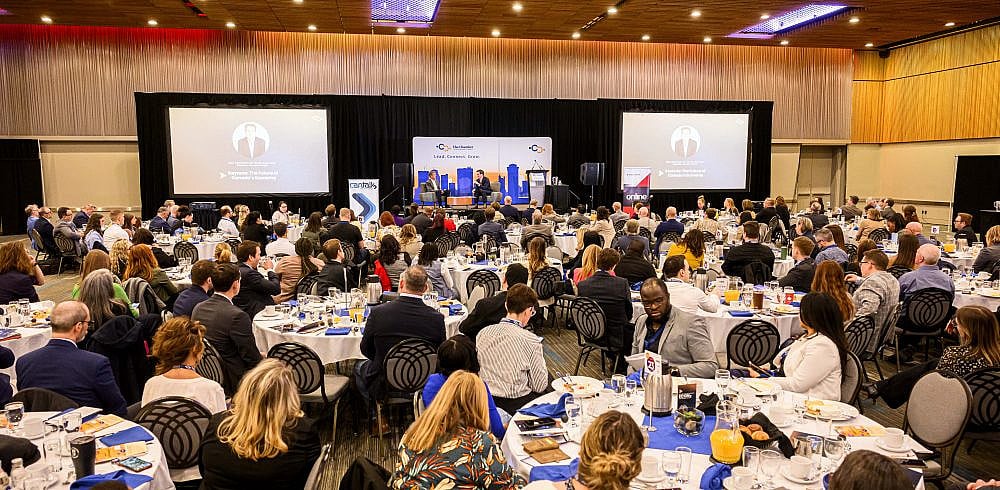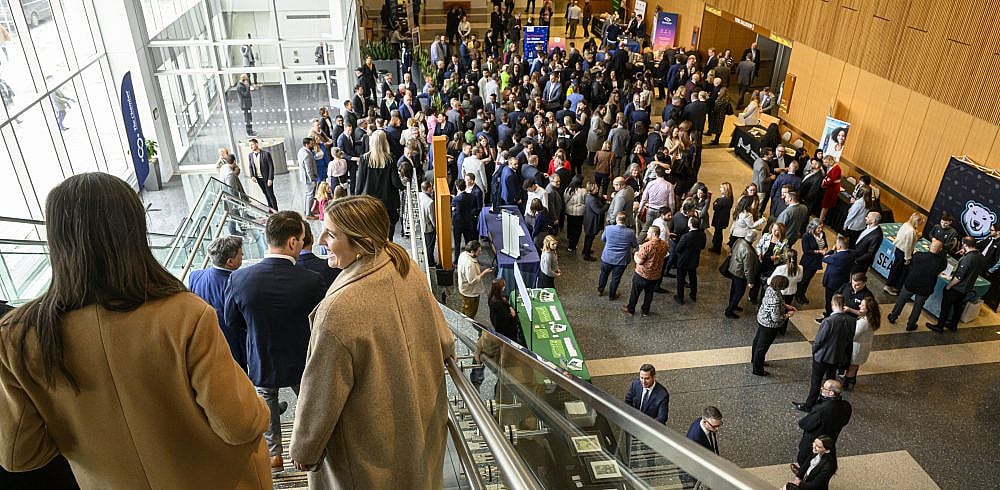On Tuesday, April 2, 2024, Manitoba Finance Minister Adrien Sala, introduced the provincial budget 2024, titled “One Future. One People. One Manitoba.” Minister Sala outlined financial projections, revealing a projected deficit of $796 million on total spending of $24.1 billion.
As The Chamber, we appreciate Manitoba’s Budget 2024 for its plan to achieve a balanced budget by fiscal year 2028. Its inclusion of a multi-year budget model for municipalities reflects a commitment to fiscal sustainability and stable local government financing. This aligns with The Chamber’s priorities outlined in the 2023 election platform.
We welcome the emphasis on the Economic Development Strategy, Indigenous Economic Development Strategy, and Trade Strategies, indicating proactive measures to boost Manitoba’s competitiveness and attract investment. However, the concerns about the rising net debt to GDP ratio are significant, we caution against the potential impacts on Manitoba’s borrowing costs. While also expressing our concerns about the tone and messaging around union and non-union jobs, particularly regarding the proposed ban on replacement workers. We believe the proposed ban could potentially disrupt the current labour environment that works well to maintain a balance between both the interests of businesses and labour.
“The budget, as the first major financial policy document of the new government, indeed set the tone and direction for the next few years. No surprise that the direction was an investment in health, education, and the proverbial social cart. However, the tone was light on economics and heavy on labours’ interest. To this end, we will continue to work with the government to advance a truly balanced budget – in dollars and tone.” – Loren Remillard, President & CEO of The Winnipeg Chamber of Commerce.
Here’s our summary of the highlights, reflecting priorities for Manitoba’s business community:
Important Tax Measures
The budget 2024 maintains current corporate and personal income taxes at the same level. It would be favourable if the government considered reducing the Health and Post-Secondary Education Tax Levy, with an eventual aim to eliminate it.
- The Basic Personal Amount (BPA) will be $15,780 for 2024, projected to increase to $16,206 in 2025. Starting from the 2025 tax year, the BPA will gradually phase out for net incomes between $200,000 and $400,000.
- The gas tax rate will remain at zero cents per litre for gasoline and diesel until September 30, 2024, aiming to save families and businesses money on fuel.
- Sales Tax Registration Threshold raised from $10,000 to $30,000 effective January 1, 2024, to ease the burden on small businesses.
- A New Rental Housing Construction Tax Credit to stimulate rental unit construction, offering $8,500 per market-rate unit and $13,500 per affordable unit, starting January 1, 2024. The budget proposes to remove PST on new affordable housing units.
- Introduction of a Homeowners Affordability Tax Credit for the 2025 tax year, which will provide up to $1,500 on principal residences.
Investments
Substantial infrastructure investments are a pivotal move towards enhancing Manitoba’s logistical efficiency and fostering long-term economic prosperity.
- $500 million in Capital Funding allocation for the repair and rebuilding of Manitoba’s highways and public infrastructure. $32.9 million increase for the Federal/Provincial Investing in Canada Infrastructure Program to support continuing infrastructure projects.
- $30 million investment to repair and upgrade the railroad and port of Churchill in CentrePort Canada.
- $10 million investment in New Flyer Industries Group’s All Canadian Build facility to build more electric buses in Manitoba.
- Introduction of $50 million funds for a Strategic Innovation Fund to provide targeted support for the industry when and where it will create the most benefit.
- $4 million contribution to the Indigenous Economic Development Fund and the development of an Indigenous Economic Development Strategy.
Workforce
Workforce development as a critical measure will make talent more accessible and crucial for fostering economic stability and development.
- Budget 2024 allocates $310 million for retention, recruitment, and training to address healthcare staffing shortages.
- An increase in funding to public universities and colleges to $845.6 million, nearly a 6% increase, creating more training seats for high-demand healthcare careers.
- $1.5 million to increase the number of apprenticeship training seats to help grow the skilled labour force.
Sustainability Measures
Sustainability measures highlighted are forward-thinking initiatives that align with environmental goals and economic innovation.
- Budget offers rebates of $4,000 for new EVs and plug-in hybrids and $2,500 for used ones.
- $10 million in funding through the Low Carbon Economy Fund to reduce greenhouse gas emissions.
- A $10 million investment to support low-carbon manufacturing of zero-emissions buses, partnering with NFI.
Other Important Measures
- The budget lifts the funding freeze on municipalities and partners with municipalities to develop a multi-year funding model.
- $300 security system rebate for families and small businesses.
- $116 million allocated towards the construction of affordable housing units.
- 9 new staff positions to expedite the Manitoba Provincial Nominee Program (MPNP).
- $200,000 for a study on relocating the rail lines dividing Winnipeg north and south.
- Allocation of $750,000 to improve immigration and settlement services.
Read the budget here.




